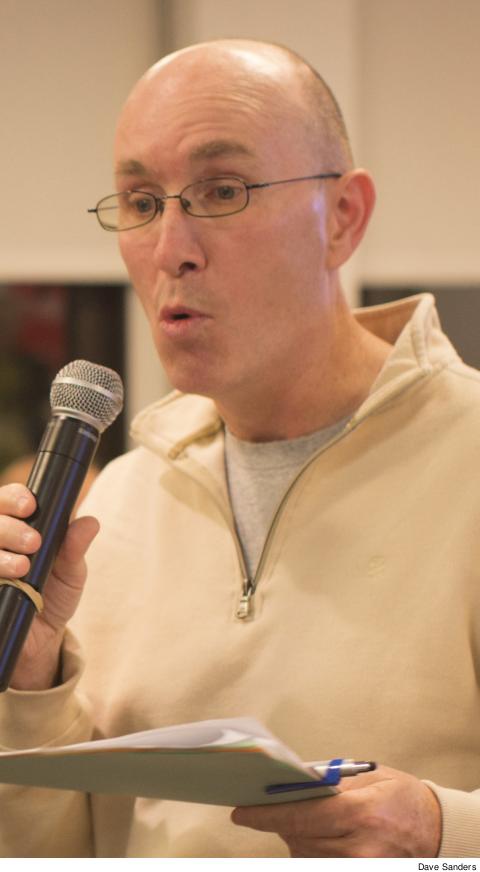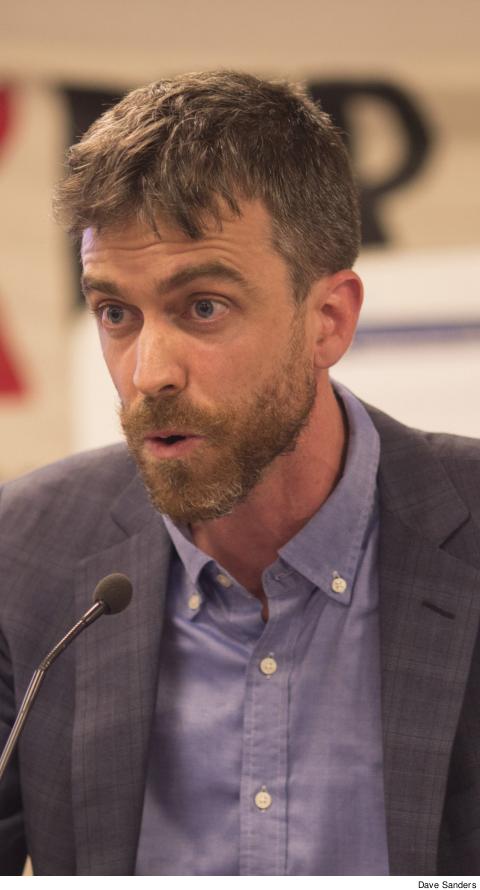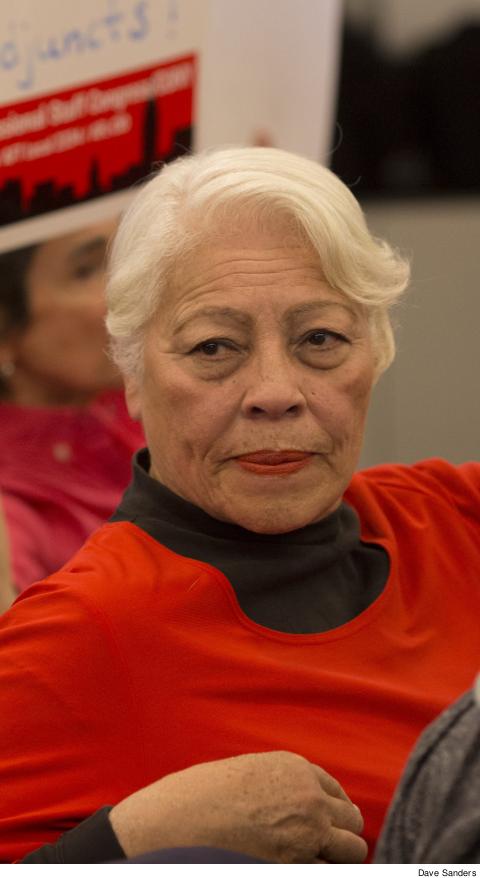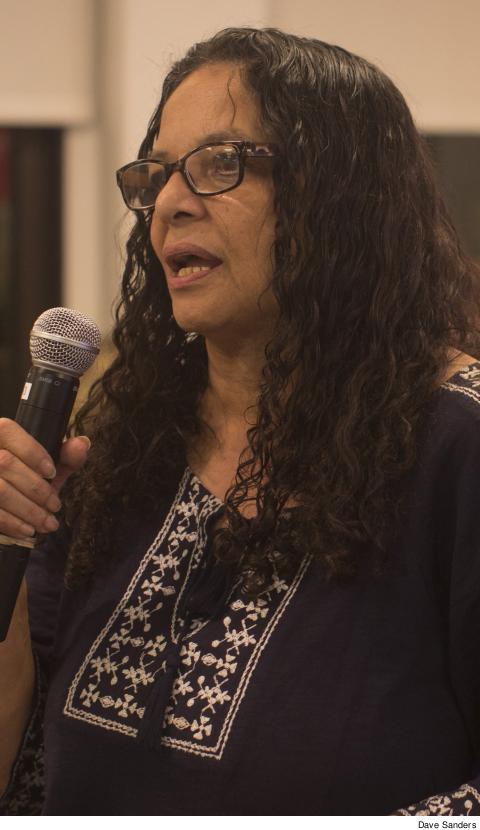Nearly two years of talks
The members of the PSC’s bargaining team met on nights and weekends. They agonized over charts and analyzed complicated economic offers volleyed between management and labor. They spent hours pressing the union’s case to an often-intransigent management-side bargaining team.
Charged with the goal of face-to-face negotiations with CUNY, the PSC bargaining team, made up of members from the PSC’s Executive Council, had the task of pushing the union’s ambitious demands.
Since the previous contract expired in November 2017, the bargaining team has worked to tackle the historical suppression of faculty and staff salaries, the poverty adjunct faculty endure and the need for providing equity increases to college laboratory technicians and other titles at the lower end of the salary spectrum.
The members of the bargaining team debated and examined all of the complicated aspects of this tentative collective bargaining agreement. The team voted to recommend the contract to the executive council, which sent the MOA to the delegates, who voted to send it to the membership for ratification.
With membership voting on a groundbreaking tentative agreement that substantially lifts pay for adjunct faculty, members of the bargaining team reflect on the long process and what the union managed to win.
Office hours
Michael Batson
Executive Council, Senior Colleges
College of Staten Island
 |
I was an adjunct for 17 years, and while we were not able to win the maximum demand of $7,000 per course for adjunct instructors, this agreement significantly advances the remuneration of every single adjunct in the bargaining unit, with the lowest-paid faculty receiving a 71% boost in their pay over the next three years.
The new minimum of $5,500 for a 3-credit course is up from the current minimum of $3,222. While the new flat rates will be applied in 2022, there are significant gains along the way: by getting compensation for previously uncompensated labor in the form of office hours, adjuncts will begin to see substantial increases in their paychecks beginning next semester. Someone teaching one 3-credit course will see a 39 percent increase starting in the Spring 2020 semester (2% + 2% compounded + one office hour).
Going forward, every raise will include the increased hours. This was no easy achievement. CUNY has relied on a good deal of free labor for decades now, and changing that took a great amount of persistence and creativity. I believe this creates a model that other academic unions will use in their bargaining. It should be added that important advances in equity were achieved elsewhere in the contract as well for CLTs, HEOs, Lecturers, graduate employees and others. All this was achieved without taking from other units of the bargaining team.
FT faculty win
James Davis
Executive Council, Senior Colleges
Brooklyn College
Our priority was to improve the wages of our lowest-paid members, but not at the expense of full-time faculty. We rejected CUNY’s demand to generate equity money by hollowing out the raises full-time faculty should expect. Our commitment was to enhance total funding, not merely redistribute a modest economic “pattern.” Sticking to this position allowed the bargaining team to achieve equity gains while also providing full-timers with raises that keep pace with inflation, including back pay in each of the two years in which we worked on an expired contract, and equity increases for our lowest-paid full-timers, the lecturers.
Structural Change
Luke Elliott-Negri
Executive Council, University-Wide
Graduate Center
 |
We have taken a huge step toward eliminating an entire tier of doctoral students – those who lack stable funding and access to health insurance (NYSHIP), a group of graduate “sometime-employees.” CUNY has committed money to provide health insurance for this entire group and we will work with the Graduate Center to construct an employment system that will allow them consistent access to the funds. This will require some work – and organizing! – in committee, but when we are done, this highly exploited class will be eliminated.
We have also gained tuition remission for those doctoral students in the PSC bargaining unit during their sixth and seventh years, where before they had to pay $2,700 annually. In the past, just as a doctoral student was focusing in earnest on her dissertation, she had to adjunct an additional course just to maintain access to the building. This will no longer be the case, and among the many results, the time to a degree is very likely to improve.
We also made an important language change that enables doctoral students to work as Graduate Assistants for a total of seven years, where before the maximum was five. And we corrected an imbalance in the Graduate Assistant B workload.
Doctoral students who have a standard five-year funding package (which includes a stipend) and who adjunct for their full workload will bring in approximately $50,000 annually. This is an amount of money that enables those from working-class backgrounds to obtain a PhD without accruing debt. It is a substantial improvement over current conditions, and we achieved it even while making a huge step toward altogether eliminating the bottom tier of graduate “sometime-employees.”
Big gains for staff titles
Iris DeLutro
VP of Cross-Campus Units
School of Labor and Urban Studies
 |
We were able to improve funding for differential awards for HEOs. For the college laboratory technicians, one of the lowest paid constituencies in the union, this MOA added more pay on their line. The Assistant to HEO title, which has a high concentration of women and people of color, needed some attention, and the MOA adds money for that line.
In addition to the economic gains of 10.4% plus more for HsEOs, we all won an important separate agreement: a joint PSC and CUNY campaign against workplace bullying.
Contract pride
Blanca Vázquez
Executive Council,
Part-Time Personnel
Hunter College
 |
This contract significantly improves adjunct pay – CUNY acknowledges that adjuncts do hold up half the sky – and addresses equity issues for our members and nonmembers alike: join the union if you have not done so! For me, the bargaining team was a role model for how to move forward in a post-Janus era and of what we can accomplish when we keep the eyes on the prize: thoughtful dialogue, solidarity across titles, organizing and persistence makes a union strong.
A lot more of that on all our campuses will make us unstoppable. There is much more to win, but we have achieved a solid foundation that we can continue to build on.
A raise for the bottom
Jacqueline Elliot
Executive Council, Cross-Campus Units
City Tech
CLTs are among the lowest-paid titles among full-time positions. We set up the labs, conduct budget research, order equipment, ensure that equipment is running properly in television studios, theater production sets and much more. When there’s not enough money in the budget, we find a way to order needed equipment. Some of us have certifications from the FDNY and all of us keep up-to-date on latest technology. We coordinate projects, counseling and course scheduling. We multitask the minute we walk into work.
Yet there are little promotional opportunities – if any – for us. The new contract gives an additional boost in pay to CLTs in addition to across-the-board raises. This additional money is a step in the right direction. It recognizes us for the work we do, the extra workload that we’ve taken on during years of austerity – and that the lowest-paid PSC titles need more of a boost to live in one of the world’s most expensive cities. I’m glad that we were able to attain the equity raises and I look forward to future contract gains where there can be formalized promotional opportunities.
No zero sum
Lorraine Cohen
VP of Community Colleges
LaGuardia Community College
What characterized the bargaining of this contract compared to the prior one was the challenge of meeting our priority of raising adjunct salaries without allowing management to turn this into a zero-sum game: if adjuncts win, full-time faculty and staff have to lose. The team worked really hard to find a way to raise adjunct salaries without diminishing the raises of other full-time faculty and staff. What allowed us to be successful was the educational and political work that the union did over a period of several years.
I am very happy the contract is settled and I hope that it will be approved by the membership. I am proud that we did not make any concessions. In a period marked by austerity, we made some important gains.

